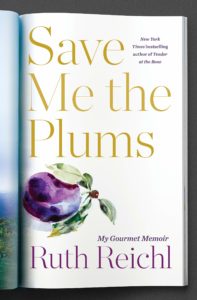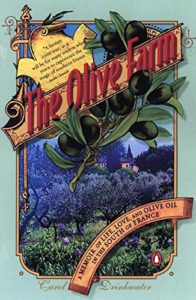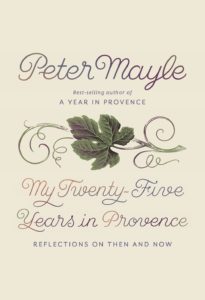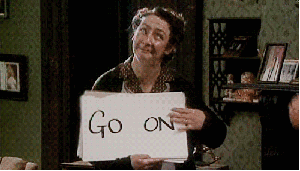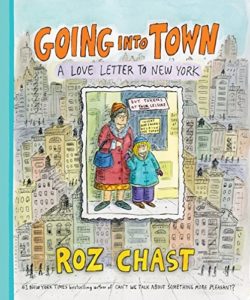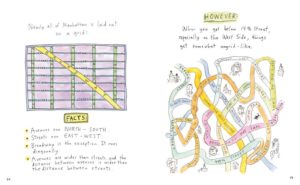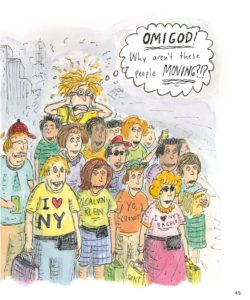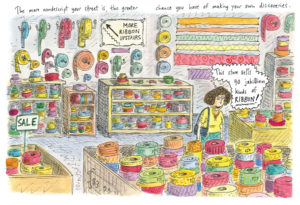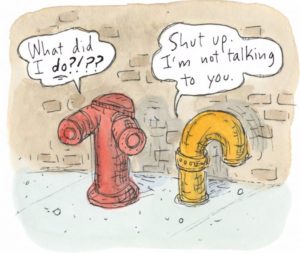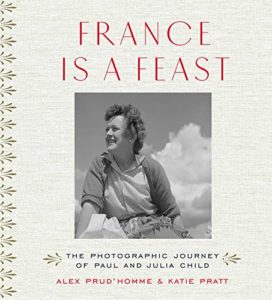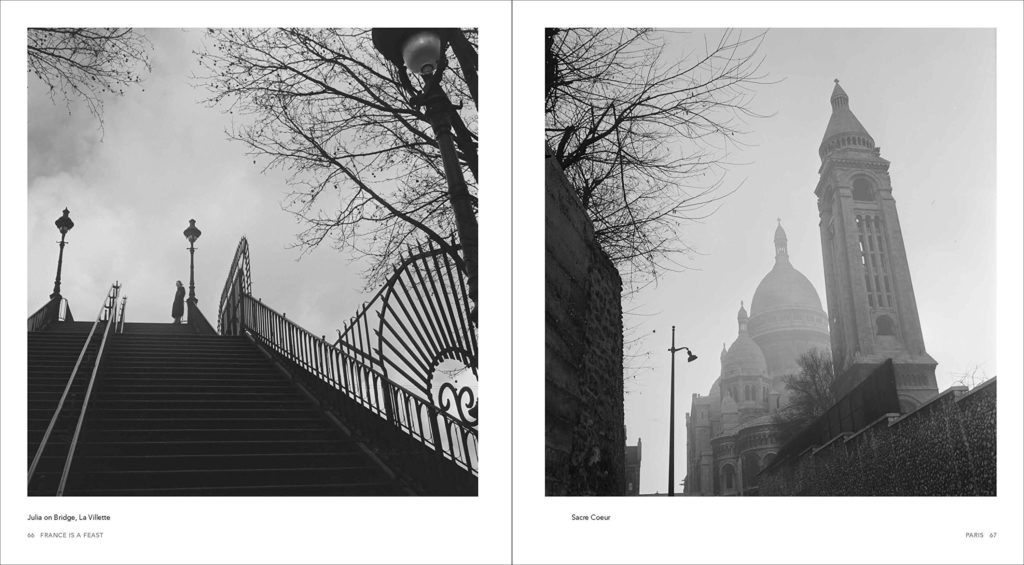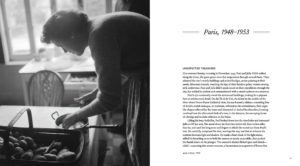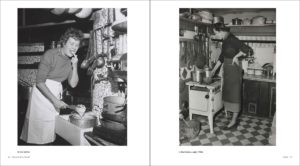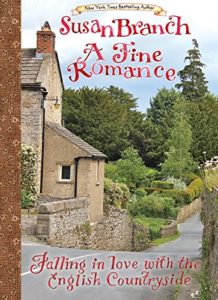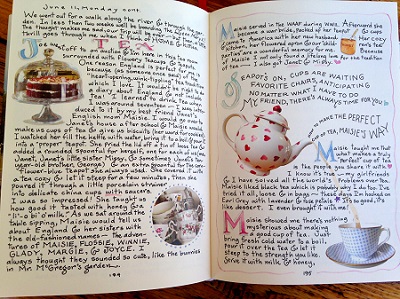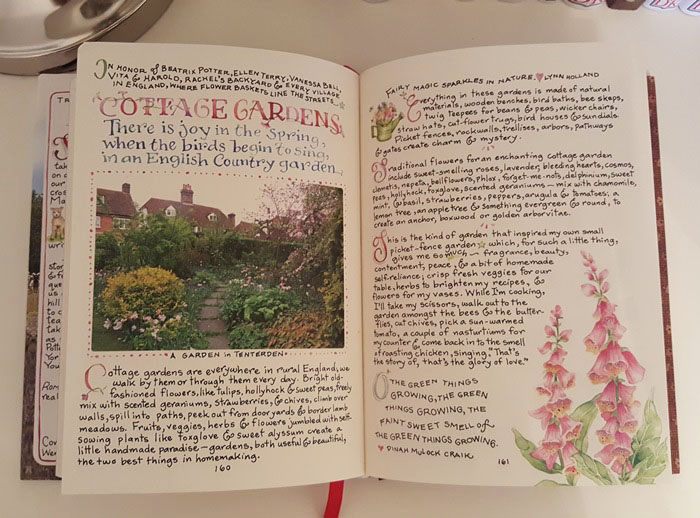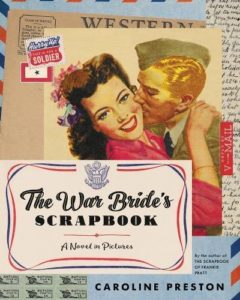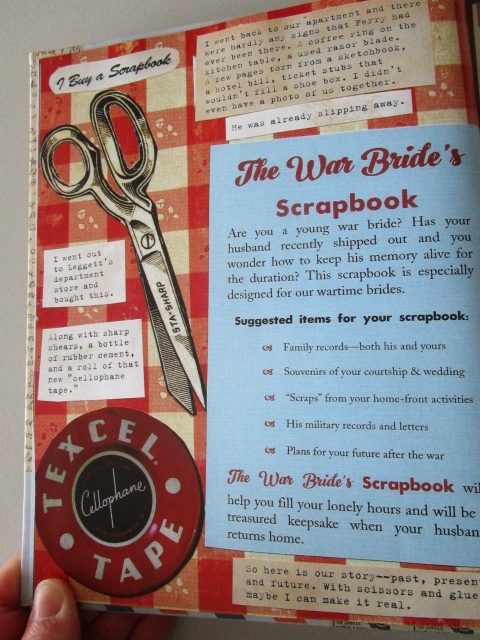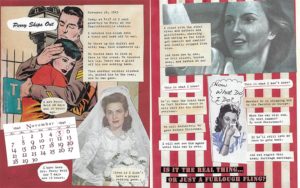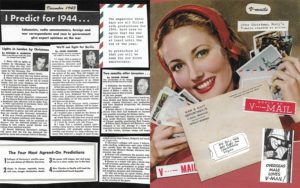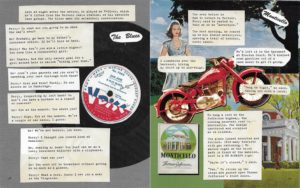Kitchen Yarns by Ann Hood
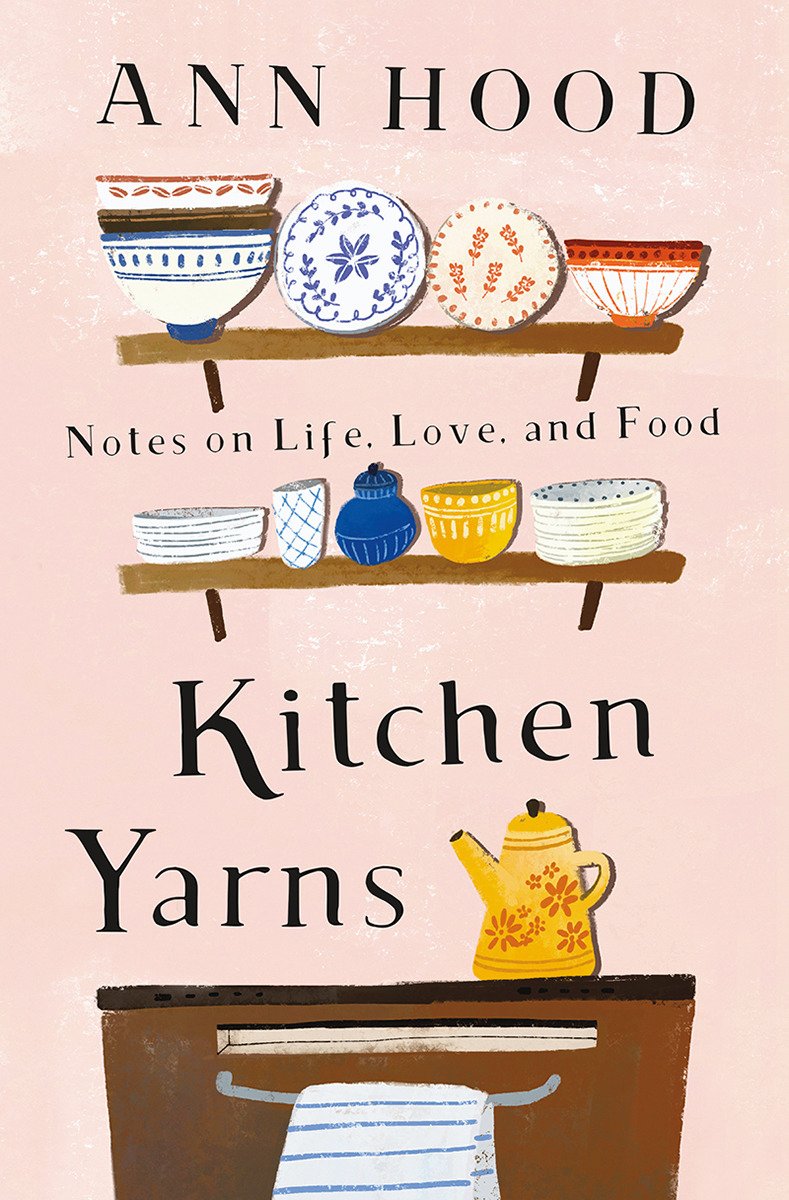 If you’ve not read Ann Hood, you’re missing out on an author with insight and humor. Kitchen Yarns – Notes on Life, Love, and Food is a great place to start.
If you’ve not read Ann Hood, you’re missing out on an author with insight and humor. Kitchen Yarns – Notes on Life, Love, and Food is a great place to start.
I knew I was in simpatico when Ms. Hood makes references to her friend Laurie Colwin one of my favorite foodie writers and novelist — as well as, the Silver Palate Cookbook — still one of my favorites – from the 80’s.
Did I mention that these essays are often fun? In Carbonara Quest, she experiments with variations of this seemingly simple, but deviously difficult dish in an effort to fill her lonely nights as a flight attendant.
When she writes about her daughter who died suddenly at age 5, it wasn’t maudlin, but so truthful and full of love that I had to make the recipe for Grace’s Cheesy Potatoes that very night.
There is one tiny drawback. Many of these essays had appeared in other publications, such as Gourmet magazine, and this makes for an sometimes stilted structure/flow. Mentions of family members, recipes, and parts of Ms. Hood’s past were introduced and re-introduced throughout. We read about her several times and the description of Ann’s brothers passing is repeated almost verbatim in a later essay.
Again a small criticism, as I found this a warm and easy book to sink into. Kitchen Yarns is filled with beautiful language and comforting descriptions of food.
Yes, I do plan to try some of her recipes in my kitchen: including, but not limited to – Peach Pie, Green Herb Sauce, the above mentioned Cheesy Potatoes and Laurie Colwin’s Tomato pie.
An advanced readers copy was kindly provided by W. W. Norton & Co.
If you’re not a foodie, you could also try Ms. Hood’s lovely memoir on reading and books Morningstar: Growing Up with Books.
I also recommend her amazing first novel Somewhere Off the Coast of Maine
Save Me the Plums by Ruth Reichl
I’m a fan of Ruth Reichl – from her restaurant reviews, to her time as editor of Gourmet magazine, to her memoirs and cookbooks – I’ve read most everything she’s done. So I was highly excited to read her latest memoir mostly because it gives more insight into the great, late lamented magazine — Gourmet (I subscribed for many, many years and miss to this day).
Save Me the Plums opens as an 8-year-old Ruth finds an old Gourmet Magazine in a used bookstore while accompanying her father on errands. She is transported by its descriptions of foreign lands, exotic foods and ingredients. She begins to collect the magazines and starts cooking. Her cooking skills expand as her mother brings home strange new foods and her father takes her through different ethnic neighborhoods to search for ingredients.
Forty years later and Ms. Reichl, now the restaurant critic for the NY Times, gets an unexpected offer from Condé Nast to run Gourmet Magazine. There are many adjustments in this new career, one of which is her delight to once again cook and eat at home rather than reviewing restaurants most every night. She is excited but also intimidated and overwhelmed during her first few weeks as editor of Gourmet Magazine.
She’s suddenly thrust into the role of highly paid executive, flying and traveling first class, having a limousine and driver, and most astonishingly, having a clothing allowance. Ms. Reichl is surprised how quickly she adapts to the monied, glitzy world of Condé Nast –her portrayals of the lavish Gourmet parties are some of her best food writing. She also gleefully sprinkles in snide and sometimes snarky gossips about the staff .
There’s a chapter on a business trip to Paris that made me clench my teeth with unseemly envy. Ms. Reichl travels in Condé Nast style, with lunch at at the famed Pierre Gagnaire , a suite at Le Meurice hotel and a shopping trip to the original kitchenware emporium E.Dehillerin where the staff loads up on copper pans. This wild trip results in one the best selling Gourmet issues on Paris (an issue I saved and still have).
In one of my favorite parts — she opens the door to reveal the famous Gourmet test kitchen(s) – and from her description they are (whoops were) everything I imagined. She writes of 9/11 and how in those same test kitchens the staff at Gourmet cooked for the first responders and firefighters.
Save Me the Plums presents a different Ruth Reichl, once a Berkeley hippie who palled around with Alice Waters seeing the beginnings of the slow food movement — this Ruth Reichl is now a sophisticated publishing executive who, for ten years thrived on everything Gourmet both gave her and demanded of her.
In Save Me the Plums Ms. Reichl gives us a rich portion — a glimpse into the luxurious world of magazine publishing, and shares her decade at the helm of Gourmet with warmth, candor, and humor.
And for dessert, she even includes a few of her favorite recipes.
An Advanced Readers Copy was kindly provided by Random House
—————————————————————————————————————————————
Also recommended: My Kitchen Year and any of Ms. Reichl’s memoirs.
Escape From Winter
Look out your window…is this your view?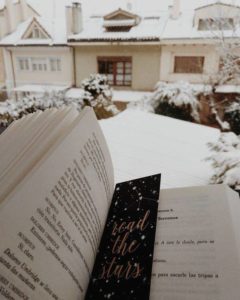
What if, instead, I could give you this view? Or this?
Here are three books certain to whisk you away to warmer climes ~~ perhaps not physically, but in your imagination.
So make yourself some cool lemonade and come with me, let’s escape winter for a bit.
The Olive Farm
A Memoir of Life, Love and Olive Oil in the South of France
by Carol Drinkwater
Carol Drinkwater is the actress best known for her portrayal of Helen Herriot in the BBC television series All Creatures Great and Small.
When Ms. Drinkwater and her fiancé (later husband) Michel, are given the opportunity to purchase ten acres of an abandoned olive farm in the South of France, they find the region’s splendor impossible to resist. Using their entire savings as a down payment, the couple embark on an adventure that brings them in contact with the beautiful countryside of Provence, its neighbors personalities, petty bureaucracies, bug infestations and unexpected wildlife. This warm and funny memoir takes the reader from the glamour of Cannes to the sunny charm of their small plot of land, which they back breakingly transform from overgrown weeds into a thriving olive farm producing some of the finest olive oil in Provence. While at times pedantic when it comes to the history of the olive and olive oil production — The Olive Farm will make wipe your brow in sympathy as they work their land and guaranteed you want to upgrade whatever mediocre olive oil lurks in your cupboard.
My Twenty-Five Years in Provence
Reflections on Then and Now
by Peter Mayle
You may remember my earlier post about Peter Mayle who died a year ago. Here is his final volume of essays – containing all new pieces which offer his warm and vivid recollections from twenty-five years in the South of France–lessons learned, culinary delights enjoyed, and changes observed.
Twenty-five years ago, Peter Mayle and his wife, Jennie, were rained out of a planned two weeks on the Côte d’Azur. In search of sunlight, they set off for Aix-en-Provence; enchanted by the world and life they found there, they soon decided to uproot their lives in England and settle in Provence. They never looked back and when Mr. Mayle’s books became bestsellers, the inspired a whole lot of Brits to follow in their footsteps.
In this volume, his 25 years in Provence have made him wiser and a bit cynical, but no less in love with the area. A cup of café might may now cost three euros–but that price still buys you a front-row seat to the charming and indelible parade of village life. After the coffee, you might drive to see a lavender field that has bloomed every year for centuries, or stroll through the ancient history that coexists alongside Marseille’s metropolitan bustle. Modern life may have seeped into sleepy Provence, but this volume reminds us that its magic remains.
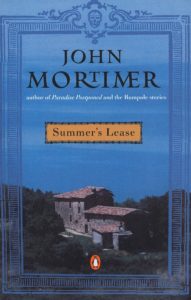 Summer’s Lease
Summer’s Lease
by John Mortimer
And now a novel. But not just any novel, a Book Barmy favorite I have re-read Summer’s Lease several times — usually in the midst of cold and damp weather.
Just to refresh your memory John Mortimer is the author of the famous Rumpole series which was adapted into a very fine BBC series ages ago.
With Summer’s Lease, Mr. Mortimer veers away from the dusty London chambers into far different surroundings – namely a hot summer in the Tuscany region of Italy.
So there you go some reading escape to take your mind off those endless layers of clothes, wet boots, and snow shoveling.
Holiday Reading
Despite a busy, happy, jam-packed holiday season, I was able to get in a few books. Nothing high brow, nothing earth shattering. A few lightweight holiday reads. Just the right ending for what turned out to be a super couple of weeks.
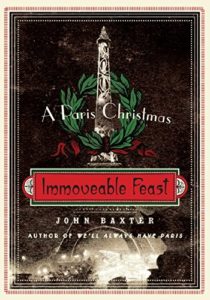 Immoveable Feast
Immoveable Feast
A Paris Christmas
by John Baxter
In this novel, John Baxter writes of preparing his first Christmas feast in France. Australian by birth, living in Los Angeles. He falls in love with a French woman:
“Struck down by that helpless love which the French call un coup de foudre – a thunderclap — I’d abandoned a comfortable life in Los Angeles and, on the spur of the moment moved to Paris to be with this woman I loved. I knew no more French than one can pick up from movie subtitles.”
It is now several years later and he has married Marie. This year he has the dubious honor to host the annual Christmas meal for friends and family. Each chapter takes the reader through his search for the perfect ingredients for his menu. There’s a whole chapter on sourcing fine French cheeses, and I swear you can smell and taste each cheese.
From traveling to India for spices, to discovering the perfect wine at a bargain price in a small village grocery — the pressure is on for our poor author. Mr. Baxter is funnily self deprecating, in awe of French style, and intimidated by their insistence on food perfection. As a frequent dinner host, I loved watching his meal plan come together and the last chapter, culminating in the meal itself, is guaranteed to make your mouth water.
I even cheered along with his guests as they erupted in very un-French-like applause over his flaming fruit dessert.
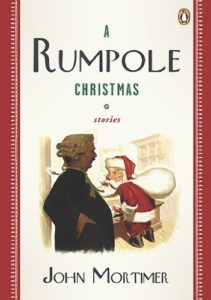 A Rumpole Christmas
A Rumpole Christmas
by John Mortimer
One of my great pleasures of the holiday season is to bring out and cozy-up with my favorite Christmas books. This collection of Rumpole stories is one such delight.
Back in the 1980’s Husband and I were fans of the BBC/PBS series Rumpole of the Bailey starring the inimitable Leo McKern. The series was based on the books and stories written by John Mortimer. (You can currently see many of the television episodes on YouTube.)
These stories feature cantankerous lawyer Horace Rumpole, his hapless colleagues at the Old Bailey and his formidable wife, Hilda (aka She Who Must Be Obeyed). These pieces variously appeared between 1997 and 2006 in various British publications, and I’ve since learned, are the only ones with a Christmas setting.
In Rumpole and Father Christmas, our barrister meets an old friend (of sorts) playing Father Christmas at the office holiday party. Meets him, that is, as he’s returning things he stole during the party.
One of the best of these stories is Rumpole’s Slimmed-Down Christmas. Rumpole’s wife, Hilda has booked them at a health farm during the holidays. Enduring yak-milk and a no alcohol policy, Rumpole finds distraction by defending the owner of the health farm against a charge of murder.
In the one story that always has me chuckling out loud, Hilda and Rumpole spend Christmas at Cherry Picker’s Hall. To Rumpole’s horror, Justice Graves (Rumpole calls him the old Gravestone) is also in attendance.
“His usually lugubrious features wore the sort of smile only previously stimulated by a long succession of guilty verdicts”
The Old Gravestone appears to find Hilda all too charming. Rumpole must endure not only dancing with Hilda, but the Old Gravestone’s attempts at flirting.
But, above all we have Rumpole himself, smoking his cheroots, swilling his cheap red wine, and always standing up for the defense. He quotes Worsdworth and Shakespeare — he is our favorite Curmudgeon Extraordinaire.
Mr Mortimer*, who died in 2009, made his career with the Rumpole series which are based on actual courtroom trials in England. He writes with great wit and, most admirably, injects subtle sarcasm into his writings. (Book Barmy note: I think many authors have difficulty writing sarcasm without seeming cruel. Mr. Mortimer is a writer who deftly crafts this fine balance.)
Rumpole’s Christmas stories never fail to delight.
* John Mortimer was a playwright, novelist, and former practicing barrister who wrote film scripts as well as stage, radio, and the Rumpole television series for which he received the British Academy Writer of the Year Award, along with his adaptation of Evelyn Waugh’s Brideshead Revisited. He is the author of twelve collections of Rumpole stories and three acclaimed volumes of autobiography. John Mortimer also wrote one of my favorite novels Summer’s Lease
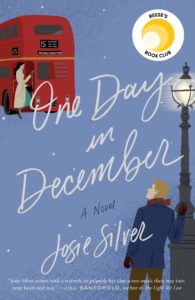 One Day in December
One Day in December
by Josie Silver
I was in the throes of a busy, yet fun, holiday and needed a lightweight read that didn’t require major brain cells.
One Day in December was a pure romantic Christmas delight. I don’t often read what is coined as “Chick-Lit” or “Rom-Com” but I was taken in by the publisher’s letter in my advanced reading copy. The letter claimed this new novel was a cross between Love Actually and When Harry Met Sally – and that it left a smile on her face for days after she finished. Okay, perfect, I decided.
It’s December and Laurel is packed on the upper deck of a London city bus and musing on her fellow passengers coughing and sneezing~~
“It’s a wonder everyone who uses public transport in winter doesn’t keel over and die of germ overload.”
Then Laurel catches the eye of a man waiting at a bus stop and their eyes lock in tandem and the world seems to disappear around them. Yes, corny, but seems it’s love at first sight. Neither can move fast enough to either get off the bus (Laurel) or the guy to run to get on the bus…so life goes on.
Eventually, their paths cross, but he (Jack) is dating her room mate and best friend, Sarah…awkward. Although Jack vividly remembers their bus sighting, and instantly feels the same connection — he decides not to acknowledge this to Laurel. And so the years go by.
Ms. Silver has constructed her novel into chapters which delve into each character’s point of view and then into yearly sections –each year ending with a wrenching December holiday plot twist. I can see a film adaptation in Ms. Silver’s future.
Far more complex and thankfully, not a typical romantic comedy, One Day in December was very nicely written and compelling. The British characters are lovably flawed — the author has them stumble through friendships, breakups, dreams, jobs and finally love. They drink too much, love too much, mess up their relationships — and I found it all quite endearing.
Great literature? No.
A cheerful and heartwarming romantic comedy? Yes.
Me. Hopeless romantic? Definitely.
Now I’ve got to go. It’s New Years Day evening. Husband has had enough football and has relinquished the television. I’m off to watch Love Actually one last time. Back to real life tomorrow Okay?
Happy New Year. 
A digital advance readers copy of One Day in December was kindly provided by Broadway Books via NetGalley.
A Lowcountry Heart by Pat Conroy
Have I told your about Pat Conroy? I’m a card-carrying adoring fan.
Mr. Conroy wrote books unlike anyone else, he was a magician storyteller and wove tales that explored the many layers of human nature. Fearless in his writing, his perfect wording could give any character or life event a voice — the frail families of the old South, uncertain love, the angst of loyal and betrayed friendship, the pain of suicide, and the infinity of human flaws — really, just awe-inspiring.
Cancer took him quickly in 2016, at age 70.
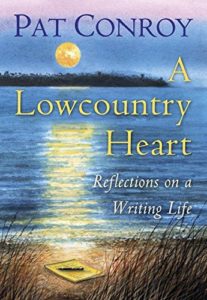 A Lowcountry Heart is a collection of his blog entries, articles, speeches and letters but also contains writings and eulogies by those that loved him. But fear not, this slender volume never treads into the saccharine, but instead is a joyful reflection of his life and times. Mr. Conroy shares his time in Vietnam, teachers in his life, his beloved Citadel, his adored second wife, and of course his love for the South Carolina lowcountry –the lifeblood of his books and his life.
A Lowcountry Heart is a collection of his blog entries, articles, speeches and letters but also contains writings and eulogies by those that loved him. But fear not, this slender volume never treads into the saccharine, but instead is a joyful reflection of his life and times. Mr. Conroy shares his time in Vietnam, teachers in his life, his beloved Citadel, his adored second wife, and of course his love for the South Carolina lowcountry –the lifeblood of his books and his life.
When his publishers advised him that he should start a blog, Mr. Conroy hated the idea but then took it as a challenge. He used it as both a journal and a way to reach out to his readers. His blog posts always began with “Hey out there,” and closed with “Great love…”.
Unlike many authors Mr. Conroy loved book tours and especially meeting with his readers.
It (book tours) is part of the covenant I sign with Doubleday that I’ll do everything possible to help the sell the book, including not getting drunk on tour or embarrassing my publishing company with my cutting-up on the road. I go out to sell books and it has become one of the greatest things about being a writer during my lifetime. No writer should turn down the chance of meeting the readers of his work.
His book signings often went late into the night because he wanted to speak personally, and at length, with each reader. They opened up to Mr. Conroy because he asked, “so, what’s your story?”. (I wonder what story I would’ve told…)
Mr. Conroy could have easily been a Southern ‘good old boy’, but it turns out he was a role model of humanity and progressiveness. He actively supported racial equality, even having a public meeting with Dr. Martin Luther King at a time when race was still a heated issue in southern society. On learning that a stranger and fellow southerner was dying of AIDS, Conroy went to be at his side so he wouldn’t die alone. Once, accidentally in a gay bar, he danced with a man because his mother raised him not to hurt anyone’s feelings.
His wife and fellow author, Cassandra King wrote the introduction to A Lowcountry Heart — a beautiful piece of writing I read several times.
The book also contains his 2001 Citadel commencement speech — I’ll just say, I found myself trying to read it through my tears.
Mr. Conroy is likely best known for his books (and the films based on his books); The Lords of Discipline, The Prince of Tides and The Great Santini.
But instead, get thee to your favorite library or bookstore read my favorites; The River is Wide, Beach Music, and South of Broad.
I’ll leave you with this, perhaps the most compelling part of this collection; Mr. Conroy is buried on a small island off the coast of South Carolina , in a modest cemetery of a Gullah Baptist church among a community that “graciously allowed a non-Baptist, non-African American writer to rest among them.”
A digital review copy was kindly provided by Doubleday Books/Nan A. Talese via NetGalley
A Picture is Worth a Thousand Words
I’ve been gathering some picture books to tell you about all at once. This winter, I enjoyed these visually enchanting escapes which took me from the streets of New York, to France, and even wartime England.
Well, grab a beverage of choice and sit right down next to me and let’s look at them together.
~~~~~~~~~~~~~~~~~~~~~~~~~~~~~~~~~~~~~~~~~~~~~~~~~~
Going Into Town
A Love Letter to New York
by Roz Chast
When Ms. Chast’s daughter was preparing to move to Manhattan for college, Ms. Chast wrote up a tongue-in-cheek guide book with tips for suburbanites navigating the city. This little booklet turned into Going Into Town: A Love Letter to New York which is a cartoon book about all the things Ms. Chast appreciates — or doesn’t— in the city she loves.
I love Ms. Chast’s work and always chuckle at her cartoons in the New Yorker magazine, on greeting cards, or her books. Remember THIS?
This book is a collection of stories and visuals — the “overheard and the overseen”, on the streets of New York — and Ms. Chast is her usual funny and cynical self.
She starts with a brief background on how she and her family moved out of the city to the suburbs for the better schools and the chance to have actual trees. But the downside was that her daughter had no city skills when venturing to university in the city.
There’s an introduction to the geography of Manhattan
Diners are all but extinct, hawks aren’t, Uber cars outnumber taxis, and in GENERAL:
3 blocks = 1 avenue
20 blocks/7 avenues = 1 mile
even streets run east, odd run west, crosstown run east-west
Going Into Town then goes on to describe the people you’ll encounter, with special warnings about the tourists…
It is evident throughout the book that poor Ms. Chast greatly misses living in the city. There’s a section on the things to do from the obvious Broadway musicals and gallery openings to the more obscure — “best hat on a dog contest”. She advocates looking — really looking — as you walk around — freshly seen through her quirky visual lens.
While Ms. Chast may have wanted to give her daughter a straightforward guide to the city, she can’t help herself and interrupts the narrative with delightful digressions about such things as the quirky stores that sell nothing but ribbon or enticing off-brand lipstick.
or the city’s great variety of standpipes,
As the title says, this is Ms. Chast’s very own love story to New York:
I feel about Manhattan the way I feel about a book, a TV series, a movie, a play, an artist, a song, a food, a whatever that I love. I want to tell you about it so that maybe you will love it, too. I’m not worried about it being ‘ruined’ by too many people ‘discovering’ it. Manhattan’s been ruined since 1626 , when Peter Minuit bought it from Native Americans for $24.00.
And, if like me, you’re stuck on the opposite coast – you’ll have a hankering to follow the author’s advice:
One of the greatest things you can do in life is walk around New York
~~~~~~~~~~~~~~~~~~~~~~~~~~~~~~~~~~~~~~~~~~~~~~~~~~
France is a Feast
A Photographic Journey of Paul and Julia Child
by Alex Prud’ Homme & Katied Pratt
From the coauthor of My Life in France, this volume is a collection of the photographs taken by Paul Child during his and Julia Child’s years in France.
This is a sometimes fascinating look at the lesser-known Paul Child, who in fact, was a talented artist, photographer, painter, lithographer, woodworker, metalsmith, stained glass expert, writer and poet.
Here’s just a sample of his fine photographic eye:
But Paul also delighted in photographing Julia:
She[Julia] was ten years younger than Paul, and not well known at the time, but she was a sunny, questing, powerful personality who had a profound impact on her husband’s evolution. He adored her and photographed her constantly; without realizing it at the time, he was chronicling her rise from a fumbling know-nothing in the kitchen to an accomplished cook and author, and America’s first celebrity TV chef.
Because of my slight obsession with Julia Child, I found myself lingering on those iconic photos:
My Life In France was one of my favorite books about Julia and Paul’s life in France and I had high hopes for this photographic essay. However, their relationship is sketched over and the often pedantic writing is focused on Paul Child, his career and interests. The final pages are devoted to the Child’s move back to Cambridge and Paul’s decline which Julia handled with courage and grace. Don’t get me wrong, I wanted to know more about Paul Child but I often lost interest. Perhaps he will always remain in Julia’s shadow.
The photographs are fascinating and France is a Feast for the eyes, but alas, not the writing.
~~~~~~~~~~~~~~~~~~~~~~~~~~~~~~~~~~~~~~~~~~~~~~~~
Falling in love with the English Countryside
by Susan Branch
A friend gave me an Amazon gift card for Christmas and I quickly ordered A Fine Romance. I had longingly thumbed through this beautiful book in a little bookstore ages ago and added to my list of “someday books”. Well, this past January was that someday.
This is not a travel guide, there is no agenda here other than to entertain and delight the reader A Fine Romance is a hand-written, illustrated chronicle of Ms. Branch’s visit to England with her husband. I lingered over almost every page — each watercolor is a tiny jewel — all interspersed with photographs, her reflections and observations
Here I’ll show you:
I read bits of this book each morning (with the obligatory cup of tea) in order to slowly savor the experience of going along as they roam the English countryside.
The book opens with the story of how the divorced Ms. Branch met Joe, which proved a bit tedious as well as, well, creepy. Here’s the creepy bit; on one of their first dates, she asked for two hotel rooms but behind her back he reserves only one. She’s surprised,unsure but just goes along with it. (Say what? Ever heard of respect for boundaries?)
This little niggle in no way detracts from the charm of the book (I just had to make that comment).
Apparently Ms. Branch has a huge following and has an impressive website with recipes, events and merchandise which sports her watercolors on everything from calendars to party favors. A bit over the top for my taste, but take a look HERE to see what you think. She also has a BLOG which I enjoy, especially the travel entries, just to admire their elegant travel style — always accompanied by a great deal of luggage.
A Fine Romance is not only for Anglophiles, but for anyone who likes pretty villages, cozy cups of tea, and beautiful gardens. Part travelogue, part diary, part sketchbook, part personal scrapbook — A Fine Romance is just wonderful.
~~~~~~~~~~~~~~~~~~~~~~~~~~~~~~~~~~~~~~~~~~~~~~~~~~
The War Brides Scrapbook
by Caroline Preston
I loved Ms. Preston’s previous novel, The Scrapbook of Frankie Pratt ,a gift from my sister. So I had to purchase another “someday” book — her newest scrapbook novel, The War Bride’s Scrapbook.
It is 1941 and Lila has graduated from Sweet Briar without the two things her mother expected; making connections with moneyed friends and a rich fiancee. Instead she came home with a magna cum laude and an art degree. Her true passion is architecture, but there’s little opportunity for women in the field. She goes to work instead for her father’s insurance business. She meets and falls hard for enlisted soldier Perry Weld and, after a three week whirlwind romance and marriage, he has shipped out.
Following the advice in a woman’s magazine,
Lila starts a ‘War Bride’s Scrapbook’ in which she chronicles their two-year separation — through their letters, but also tickets, menus, food labels, and newspaper articles.
This ‘story in pictures’ is told through this scrapbook device, as we get to know the characters and their experiences both at home and in war-time Europe.
Just take a look at this visual and literary feast.
Lila matures into a strong independent woman who eventually gets accepted into the male-dominated Harvard architecture school and onto a career of her own.
Ms. Preston uses this scrapbook to give us a insight into the issues of the time — the changing roles and societal expectations for women, PTSD, the atomic bomb, and even the Japanese American imprisonment.
Many of the visuals are from Ms. Preston’s own collection of vintage scrapbooks and ephemera, but she also did a fair share of research and borrowed items from other artifact collectors.
The War Brides Scrapbook brims with vivid characters and a brilliantly laid-out collection of WWII-era ephemera.
~~~~~~~~~~~~~~~~~~~~~~~~~~~~~~~~~~~~~~~~~~~~~~~~~~~
Whew, congratulations you made it through this long post. So now, we’ll have to return to the real world of grown-up books -most, sadly without pictures.


